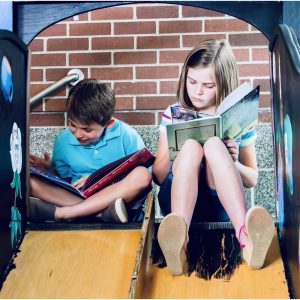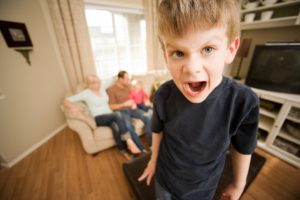Self-Reflective Approach to Becoming a Better Parent
Becoming a better parent doesn’t only involve our present actions. To truly develop ourselves as parents, it is important to look at our own past . Child development expert Joyce Catlett talks about how making sense of our own childhood experiences can help us to become better parents to our children.
About the Author
Joyce Catlett, M.A.
Joyce Catlett, M.A., author and lecturer, has collaborated with Dr. Robert Firestone in writing 12 books and numerous professional articles. Most recently, she co-authored Sex and Love in Intimate Relationships (APA Books, 2005), Beyond Death Anxiety: Achieving Life-Affirming Death Awareness (Springer Publishing, 2009) and The Ethics of Interpersonal Relationships (Karnac Books, 2009), with Robert Firestone PhD. Ms. Catlett began her career in psychology in 1972, working with autistic children at the Camarillo State Hospital Children’s Treatment Center in Camarillo, CA. A founding member of Glendon Association, she has been a national lecturer and workshop facilitator in the areas of child abuse prevention and couple relations. With Glendon, she has co-produced 40 video documentaries on a wide range of mental health topics. Ms. Catlett was also instrumental in the development and training of instructors in the Compassionate Child Rearing Education Program and in training mental health professionals in Voice Therapy Methodology.
Related Articles
One Comment
Leave a Reply Cancel reply
You must be logged in to post a comment.
Understanding and Preventing Teen Suicide: CAMS-4Teens™ as an Effective Treatment Approach
Learn MorePopular Posts
- How to Say What You Want in Your Relationship
In my 30 years working with couples, I’ve noticed that most people have an easy time describing what they don’t…
- Psychalive - Psychology for Everyday Life
The Latest Why Is Honesty So Important in a Relationship?
- How to Break the Cycle of Child Abuse
At this point, I shouldn’t have to list off all the reasons spanking your child doesn’t work.
- How Technology is Changing Dating
The adoption of technology has changed the way we connect and converse with others in our society and dating is…
- Self-Reflective Approach to Becoming a Better Parent
Becoming a better parent doesn't only involve our present actions.
Related Articles
-

- Nerf Guns – What Are We Afraid of? by Debra Kessler, Psy.D.
November 28, 2009
For the holidays I gave a Nerf gun to my 8-year -old nephew. He was delighted. It was his first…
-

- How to Help Your Child Get Things Done (Without a Fight)
July 16, 2021
Many parents struggle with repeated conflicts with their kids. One moment may be about getting homework done, and the next…
-

- Tantrums
June 1, 2009
What to do about temper tantrums and meltdowns: Dealing with a child who is having a temper tantrum or meltdown…







I haven’t taken any seminars of classes on this, but I’m where you describe. I’m naturally empathic, and although it’s not a good thing generally speaking, it does provid you with alot better insight on people, which can be good at times. So, yeah, I’ve looked back and examined how my own parents treated me, and why, in other words how they were [mis]treated and how they brought that in the triangle when they had me and how I was fed all that baggage, unwillingly mostly. However, I beg to differ in one point, that I may justify and forgive and understand but that doesn’t change the fact. And it doesn’t change the way I’ve felt and feel and have flet throughout my life, and the way this has shaped me. So compassion and understanding is all well and good, but in the practical aspect of it it’s rather useless. Moreover because the behavioural way you follow is based on the way you were brought up and no matter how conscious you may be about it, when push comes to shove you will fall back to familiar patterns of behaviour, good and bad. So, I may have vouched that I won’t be like my mother, but I find that I can’t distance myself at the very moment that is needed in order to judge whether or not I am behaving like her, cause that happens almost on automatic.